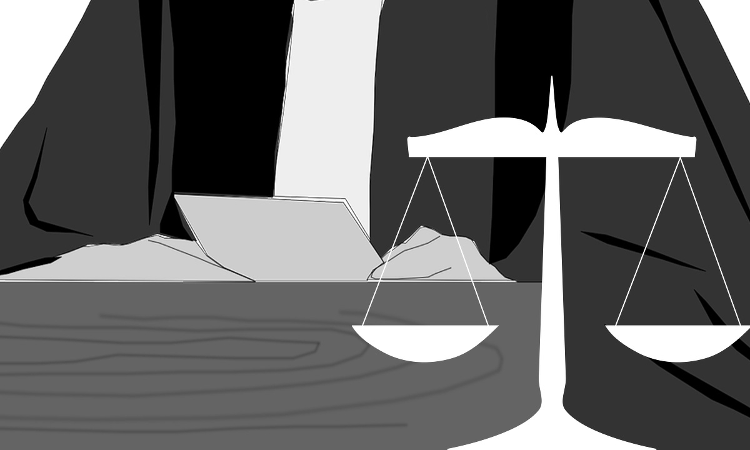Law Is Neither Quantum Mechanics Nor An Enigma
Kallol Basu
10 July 2022 4:47 PM IST

"If changing judges changes law , it is not even clear what law is", Robert Posner.
Why is there a climate of uncertainty pervading the entire judicial system? Where lies the defect?
Posner who is one of the finest American jurists and legal scholars of our time, has critically recognised four kinds of judgments; first, judgment with reflective and thoughtful observations; second, judgment based on randomness, third, instinctive judgment, and fourth, judgment which may be called extremely foolish. He has always regarded the instinctive, random and stupid judgment, as variations of the same.
It's a perception that some judges do not like their judgments being discarded by the higher courts, and sometimes, the lawyers who argued the matter might face awkward or unpleasant circumstances. Perception however, cannot always be said to arise out of prudent thinking, because the latter refers to the cognitive ability and the former does not.
Some judges are either influenced by political philosophy or political connections. Sometimes, judges lay down the incorrect interpretation of law, perhaps because of the ineptness or conscious misrepresentation on part of the lawyers. Sometimes, personal knowledge and childhood trauma are the crucial factors.
Having said that, there are umpteen number of judges who are as calm and strict as the mountains and impartial as fire and will never be influenced by any conscious or unconscious volition.
Whether the Justice can draw the picture of untold pain of the common people? Whether it will now speak for them?
We often say, "Parliament is presumed to know the people of the country". Hence, when someone challenges the constitutionality of any legislation, the presumption always tilts in favour of the constitutionality. However, at the same time, it proffers an argument as to whether these presumptions underlying legislations are set in stone or whether they require to be re-interpreted with the passage of time and in tune with changing circumstances? Because the question still exists as to why the conclusions of justice differs in different cases arising out of similar facts?
Today, I was reading a write-up of the Nobel laureate, Daniel Kahneman that flows from 'Flaw in human judgment'. Again, after considering this unwanted differentiation and climate of uncertainty, Shri Punarjit Roy Chowdhury has shared with us an experiment, conducted in 1981 in America, where 16 cases of similar nature had been handed over to 208 Judges, to consider and pass appropriate sentences. The outcome of this experiment enounced immense contrast and variance of opinions in the sentences passed in those 16 cases. The experiment shows the average variance between the sentences delivered by two randomly selected Judges is more than three and half years. Thus, it is needless to state that these noises or uncertainties creates dubiousness in the entire justice delivery system.
How shall we perceive judicial behaviour? Mr. Daniel Kahneman has shown several studies scrutinizing the social significance of that noise. Many a times, the Constitutional Courts often say, "we cannot thrust our own opinions over the opinions of experts". Such observations are common in cases of recruitment by a body of expert selectors. It could be said that where a group of selectors, collectively makes a decision to select a requisite number of candidates out of a larger pool, such selection must reflect mathematical precision and certainty. If and when such decision is challenged, it is not always the best course for a Court of judicial review to shy away from inquiring into the decision making process with the aim to locate the foundation of and reasoning behind such selection. If no such reasoning or mathematical logic can be exhumed after a close examination of the selection process, the same must be declared void and curative measures ought to be undertaken to ensure that ideals of corrective justice prevail. If it appears to the Court that the aforesaid examination of the Selection Process cannot be carried to its logical conclusion by itself, then it should not disregard the possibility of consulting mathematical and statistical experts for foolproof interpretation of the data including but not limited to age, qualification of candidates, suitability for the job and so on. Unnecessary invocation of self-imposed restriction, can and will lead to the demise of justice. This is especially true when the Court has been asked by the aggrieved litigant to look into the alleged injustices perpetrated in the Selection Process or formulation of question papers of an examination or marking system adopted by an Examiner and so on.
A contrasting approach is visible in case of environmental issues where Writ Courts, with the assistance of experts, have gone into complex questions of environmental protection, the science underlying such protection and developed several principles and mechanisms for ensuring prevalence of a clean and green environment.
Thus, the proclivity of the Courts to resort to self-imposition of restrictions, is not uniform and reflective of undulations. This in turn, gives rise to uncertainties in law which in itself, is an anathema to the Rule of Law.
Albeit it is true that the Court cannot substitute its own opinion in place of the opinion of experts, ascertaining whether such substitution would be necessary hinges on the Court's examination of the process by which such opinion was reached. That is the essence of judicial review; a tool for restraining the injustice.
Over inclination towards self-imposed restrictions may render injustice and defeat public trust in the judiciary in the long run.
The author is an Advocate at Calcutta High Court and views are personal.


